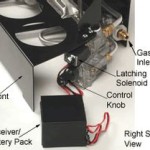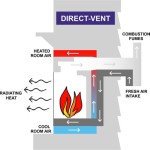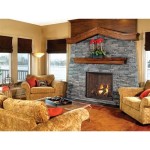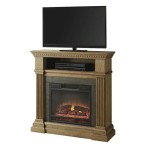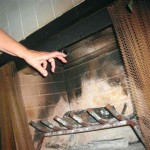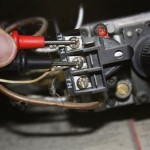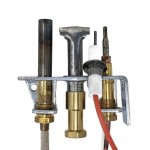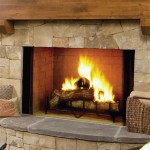Gas Fireplace Repair in Boston: A Comprehensive Guide
Gas fireplaces offer a convenient and efficient way to add warmth and ambiance to a home in Boston. Unlike traditional wood-burning fireplaces, gas fireplaces require minimal maintenance and provide instant heat with the flip of a switch. However, like any appliance, gas fireplaces can experience malfunctions and require professional repair. Understanding the common issues, troubleshooting steps, and the importance of professional intervention is crucial for maintaining a safe and functional gas fireplace.
This article provides a comprehensive guide to gas fireplace repair in Boston, focusing on common problems, potential DIY solutions, and when to seek the expertise of a qualified technician. The information presented aims to equip homeowners with the knowledge needed to address minor issues and make informed decisions regarding more complex repairs.
Common Gas Fireplace Problems
Several issues can arise with gas fireplaces, affecting their performance and safety. Identifying the specific problem is the first step towards effective repair. Common issues include:
Pilot Light Problems: A pilot light that won't light or frequently goes out is one of the most prevalent gas fireplace issues. This can be caused by a dirty pilot orifice, a faulty thermocouple, or a problem with the gas supply. A dirty pilot orifice restricts gas flow, preventing the pilot light from igniting or keeping it lit. A thermocouple is a safety device that senses the heat from the pilot light and allows the main gas valve to open. If the thermocouple fails, the gas valve will close, extinguishing the pilot light.
Ignition Issues: Even if the pilot light is lit, the main burner might fail to ignite. This could be due to a faulty igniter, a blocked burner, or a problem with the gas valve. An igniter creates the spark that ignites the gas. If the igniter is weak or broken, it may not produce a sufficient spark to ignite the gas. A blocked burner can prevent the gas from flowing properly, hindering ignition. A malfunctioning gas valve may not allow gas to flow to the burner even when the igniter is working correctly.
Gas Odor: The smell of gas, even a faint odor, is a serious cause for concern. It could indicate a gas leak, which poses a significant safety hazard. A gas leak can occur at various points in the gas line, including connections, valves, and the burner itself. Immediate action is required to prevent potential explosions or health risks. While a brief whiff of gas upon initial startup might be normal, a persistent or strong odor warrants immediate attention.
Soot Buildup: Excessive soot buildup on the fireplace glass or surrounding areas suggests incomplete combustion. This can be caused by a problem with the air-to-gas mixture or a blocked vent. Insufficient air supply during combustion results in incomplete burning of the gas, leading to the formation of soot. A blocked vent restricts the flow of exhaust gases, further contributing to soot buildup.
Strange Noises: Unusual noises, such as popping, clicking, or hissing sounds, can indicate various problems. Popping sounds might be due to thermal expansion of metal components. Clicking sounds could be related to the igniter system. Hissing sounds could suggest a gas leak or a problem with the gas valve. Identifying the specific source of the noise can help pinpoint the underlying issue.
Damaged Logs or Burner: Over time, gas logs can crack, crumble, or become dislodged, affecting the flame pattern and appearance. A damaged burner can also affect the flame and efficiency of the fireplace. Physical damage to the logs can obstruct gas flow or alter the flame pattern. Corrosion or damage to the burner can lead to uneven burning and reduced heat output.
Fan Malfunction (if applicable): Many gas fireplaces have a built-in fan to circulate warm air. If the fan is not working, the fireplace may not distribute heat effectively. Fan malfunctions can be caused by a faulty motor, a blocked fan blade, or a wiring issue. A malfunctioning fan reduces the efficiency of the fireplace by preventing the effective distribution of heat throughout the room.
Potential DIY Troubleshooting and Solutions
While some gas fireplace repairs require professional expertise, homeowners can attempt some basic troubleshooting steps to resolve minor issues. However, it is crucial to prioritize safety and exercise caution when working with gas appliances. If unsure, always contact a qualified technician.
Pilot Light Relighting: If the pilot light is out, follow the manufacturer's instructions to relight it. Typically, this involves turning the gas control knob to the "pilot" position, pressing and holding the reset button, and using a lighter or match to ignite the pilot light. Hold the reset button for the recommended time, usually 20-30 seconds, to allow the thermocouple to heat up. If the pilot light consistently fails to stay lit, further investigation is required.
Cleaning the Pilot Orifice: A dirty pilot orifice can prevent the pilot light from staying lit. Use a small needle or wire to gently clean the orifice, removing any debris or obstructions. Ensure the gas supply is turned off before attempting to clean the orifice. Avoid using excessive force, as this can damage the orifice.
Checking the Thermocouple: Inspect the thermocouple for any signs of damage or corrosion. Clean the thermocouple with fine-grit sandpaper to remove any buildup. If the thermocouple is visibly damaged, it should be replaced. Replacing a thermocouple is a relatively simple repair that can often be done by a homeowner with basic mechanical skills.
Cleaning the Burner: A dirty burner can prevent the main burner from igniting properly. Use a brush or vacuum cleaner to remove any dust, debris, or soot from the burner ports. Ensure the gas supply is turned off before cleaning the burner. Avoid using water or other liquids to clean the burner, as this can cause corrosion.
Checking the Gas Supply: Ensure the gas supply to the fireplace is turned on. Check the gas valve to ensure it is in the "on" position. If the gas supply is interrupted, the fireplace will not function properly. Check other gas appliances in the home to determine if the gas supply issue is localized to the fireplace or affects the entire house.
Replacing Batteries: Some gas fireplaces use batteries to power the igniter or remote control. Check the batteries and replace them if necessary. Weak batteries can prevent the igniter from generating a sufficient spark to ignite the gas.
Inspecting the Vent: Check the vent for any obstructions, such as bird nests or debris. A blocked vent can prevent proper ventilation and lead to soot buildup. Ensure the vent is clear and unobstructed to allow for proper exhaust of combustion gases.
When to Call a Professional for Gas Fireplace Repair in Boston
While some troubleshooting and minor repairs can be attempted by homeowners, certain situations necessitate the expertise of a qualified gas fireplace technician. Attempting to repair complex issues without proper training and equipment can be dangerous and potentially lead to further damage. Here are situations where professional intervention is required:
Gas Leaks: As mentioned earlier, any suspicion of a gas leak requires immediate professional attention. Evacuate the premises and contact the gas company or a qualified repair technician immediately. Do not attempt to locate or repair the leak yourself.
Gas Valve Issues: Problems with the gas valve, such as a valve that won't open or close properly, require professional repair. The gas valve controls the flow of gas to the fireplace, and any malfunction can be dangerous. Replacing or repairing a gas valve requires specialized tools and expertise.
Ignition Problems: If the igniter fails to produce a spark even after replacing the batteries, a professional technician should diagnose the problem. The igniter system can be complex, and diagnosing the underlying issue requires specialized knowledge and equipment.
Soot Buildup: Excessive soot buildup often indicates a more serious problem with the air-to-gas mixture or venting system. A professional technician can diagnose the cause of the soot buildup and recommend appropriate repairs to ensure safe and efficient combustion.
Complex Electrical Issues: Gas fireplaces often have electrical components, such as fans, blowers, and remote control systems. Electrical repairs should only be performed by a qualified electrician or gas fireplace technician. Working with electrical systems can be dangerous and requires specialized training.
Damaged Firebox or Venting System: Any damage to the firebox or venting system can compromise the safety and efficiency of the fireplace. A professional technician can assess the damage and recommend necessary repairs or replacements. The firebox and venting system are critical components of the fireplace, and any damage should be addressed promptly.
Lack of Experience: If the homeowner is uncomfortable working with gas appliances or lacks the necessary experience, it is always best to call a professional technician. Gas fireplaces can be dangerous if not handled properly, and it is better to err on the side of caution.
Warranty Considerations: Attempting to repair a gas fireplace while it is still under warranty may void the warranty. Consult the warranty documentation before attempting any repairs.
When selecting a gas fireplace repair technician in Boston, ensure they are licensed, insured, and experienced in working with gas appliances. Ask for references and read online reviews to assess their reputation and quality of work. A reputable technician will be able to accurately diagnose the problem and provide a cost-effective solution.
Maintaining a gas fireplace involves regular cleaning and inspection. Schedule annual maintenance with a qualified technician to ensure the fireplace is operating safely and efficiently. Regular maintenance can help prevent problems and extend the lifespan of the fireplace.
By understanding the common problems, potential DIY solutions, and the importance of professional intervention, homeowners in Boston can ensure their gas fireplaces provide safe and reliable warmth for years to come.

Repair Services For Gas Fireplaces Boston Ma

Gas Fireplace Repair Service Boston Ma

Repair Services For Gas Fireplaces Boston Ma

Repair Services For Gas Fireplaces Boston Ma

Top 10 Best Gas Fireplace Repair In Boston Ma December 2024 Yelp

Maintenance For Gas Fireplaces Boston Ma

Gas Fireplace Repair Service Boston Ma

Gas Fireplace Repair The Best In Worcester Ma
.jpg?strip=all)
Gas Fireplace Repair Install Boston Hearth Fire Place Acton Woburn

Professional Installation Is Important Boston Ma Billy Sweet
Related Posts

